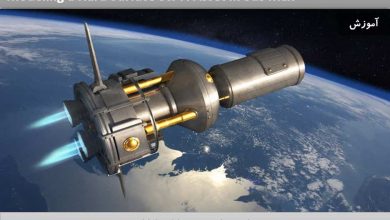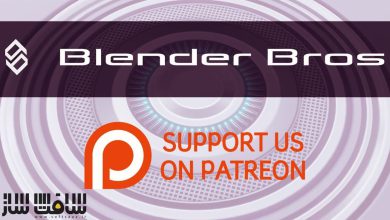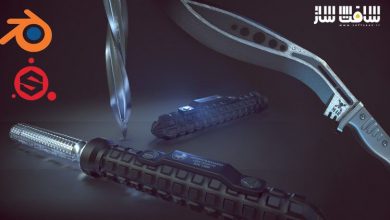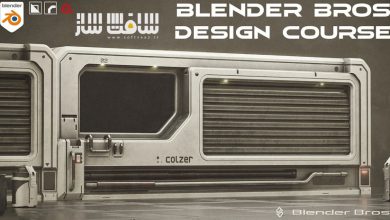آموزش مدلینگ سطوح سخت غیر مخرب در Blender
Udemy – Non-Destructive Hard Surface Modeling in Blender
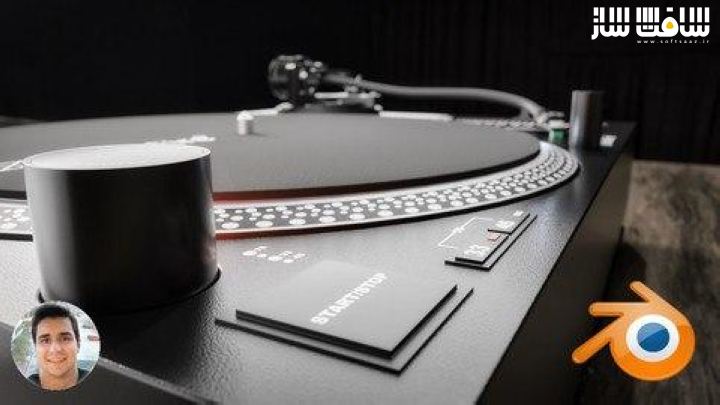
آموزش مدلینگ سطوح سخت غیر مخرب
در این دوره با آموزش مدلینگ سطوح سخت غیر مخرب ، ورک فلوی بولین و عملگر های bevel در بلندر آشنا خواهید شد. در ابتدا با مفاهیم و اطلاعت مهمی آشنا می شوید و سپس نحوه کار بولین ها و bevel ها با هم می آموزید.
به این سئوال جواب میدهیم که چرا از ورک فلوی سطوح subdivision بیش از حد استفاده می شود و چه مشکلاتی در آینده بوجود می آورند. سپس به مرحله مدل سازی می رویم و مدل را با اطمینان از ابعاد دقیق برای کمک به دستیابی به یک ورک فلوی بینقص مسدود می کنیم .
سپس از برش های بولین و تکنیک های مدل سازی سطوح سخت مختلف برای افزودن جزییات دقیق استفاده خواهیم کرد. هدف اصلی این دوره تمرکز روی مادیفایر های bevel و بولین است.
بعد از مدلینگ،از سیستم متریال توکار بلندر برای دستیابی به تکسچرهای فوق واقعی و تنظیمات متریال دنیای واقعی استفاده خواهیم کرد. سپس نشانه های متنی را به مدل برای دادن احساس کامل و رئالیسم اضافه خواهیم کرد.
در نهایت نحوه تنظیم صحنه برای رندرینگ ، دادن یک بک گراند زیبا و تنظیمات دوربین خیره کننده را برای دستیابی به یک رندر فوق واقعی را یاد می گیریم. این دوره آموزشی توسط تیم ســافــت ســاز برای شما عزیزان تهیه شده است.
عناوین آموزش مدلینگ سطوح سخت غیر مخرب :
- مدل سازی سطوح سخت
- مدلینگ غیر مخرب
- مدل سازی سه بعدی
- رندرینگ ،کامپوزیشن ، متریال دهی و تکسچرینگ
- ورک فلوی Bevel و Boolean
- بلندر سه بعدی
- مشکلات مربوط به مدل سازی سطوح subdivision
عنوان دوره : Udemy – Non-Destructive Hard Surface Modeling in Blender
سطح : متوسط
زمان کل دوره : 5 ساعت
تعداد فایل های تصویری : 38
سال آموزش : 2020
فایل تمرینی : دارد
مربی دوره : Josh Gambrell
نرم افزار : Blender
زیرنویس انگلیسی : ندارد
Udemy – Non-Destructive Hard Surface Modeling in Blender
Hey there! Josh here, presenting you with my newest and most beneficial course: Non-Destructive Hard Surface Modeling in Blender. We’ll cover the following:
Non-destructive workflow and modeling theory
Boolean and Bevel operations
Problems with Subdivision Surface workflows
Comprehensive modeling, texturing, and rendering workflow
Issues with booleans and how to solve them
Proper lighting and rendering settings for photorealism
Overview
We’ll start with some important introductory info. You’ll understand how booleans and bevels work powerfully together, along with why the subdivision surface workflow is overused and will give us problems in the future.
Next, we’ll hop right into the meat of the course: the modeling. We’ll block out the model first, ensuring accurate dimensions to help us achieve a flawless workflow. Then we’ll use boolean cutters and various hard-surface modeling techniques to add accurate detail. The core of the course will involve mastering the boolean and bevel modifiers, while also solving the annoying issues caused by these modifiers.
After modeling, we’ll use Blender’s built-in material system to achieve realistic textures and real-world material settings.
Next, we’ll add text decals to the model to give it a feeling of completeness and realism.
Finally, we’ll set up the scene for rendering, giving it a nice background and stunning camera settings to achieve a photorealistic render.
You won’t be able to tell whether your final scene is a 3D render or photograph; it looks that real.
Master the Non-Destructive Workflow
Have you ever heard of the term “destructive” or “non-destructive” while 3D modeling? Well, what’s the difference, and is one better than the other? The answer is it depends. This course will focus mainly on the non-destructive workflow, but we’ll also use destructive modeling techniques throughout parts of the course. This means that you’ll gain an intuition for when to use one workflow over the other. You can use both workflows together when one technique is better suited over the other.
The power behind the non-destructive workflow is that we can use booleans with ease. Booleans are those things that allow you to add cut-outs to your model, kind of like when you cut out shapes in cookie dough before baking them. However, if you’re familiar with 3D, it’s no surprise that booleans can cause significant issues. We’ll discuss how the bevel modifier can solve most of these problems.
How is this course different?
I see the term “non-destructive” thrown around too much without detailed explanation. It took me forever to finally understand and gain an intuition behind this workflow. What techniques warrant the term “non-destructive”? Why does this workflow even matter? The answer is to just stop worrying about it; people get too caught up focusing on one workflow or another, where they should just be designing and naturally using such techniques without even realizing it. What does matter is how well you’re applying your skill set. This course will give you the intuition behind 3D modeling, meaning you’ll just be able to create without thinking too much about which workflow to use.
Remember when you first learned how to drive a car? You had to think about how hard to press the gas pedal, how much to turn the wheel, how to angle your car to park nicely, or how to time a merge into traffic. But over time, these techniques became muscle memory and you didn’t have to think about it. By the end of the course, 3D modeling will feel much the same way, and you’ll be able to just work rather than worry.
Conclusion
Whether you’re a beginner or experienced 3D artist, this course will help expedite your workflow and give you new techniques to use. Blender is a massive 3D software, with so many different areas to focus on. The course breaks everything down nicely for the beginner viewer, while not being overwhelmingly boring for the experienced one. With the key strokes listed and every operation detailed, you won’t fall behind or get lost during the design. This course is meant to revolutionize your 3D ability, and will leave you a proficient modeler by the end of it.
Who this course is for:
Beginner modelers wanting to learn new and efficient workflows
Experienced 3D users wanting to get familiar with non-destructive workflows
Students wanting to learn hard-surface modeling/design
Students who want to master their 3D modeling skill set
حجم کل : 4.4 گیگابایت

برای دسترسی به کل محتویات سایت عضو ویژه سایت شوید
برای نمایش این مطلب و دسترسی به هزاران مطالب آموزشی نسبت به تهیه اکانت ویژه از لینک زیر اقدام کنید .
دریافت اشتراک ویژه
مزیت های عضویت ویژه :
- دسترسی به همه مطالب سافت ساز
- آپدیت روزانه مطالب سایت از بهترین سایت های سی جی
- ورود نامحدود کاربران از هر دیوایسی
- دسترسی به آموزش نصب کامل پلاگین ها و نرم افزار ها
اگر در تهیه اشتراک ویژه مشکل دارید میتونید از این لینک راهنمایی تهیه اشتراک ویژه رو مطالعه کنید . لینک راهنما
For International user, You can also stay connected with online support. email : info@softsaaz.ir telegram : @SoftSaaz
امتیاز به این مطلب :
امتیاز سافت ساز
لطفا به این مطلب امتیاز دهید :)


